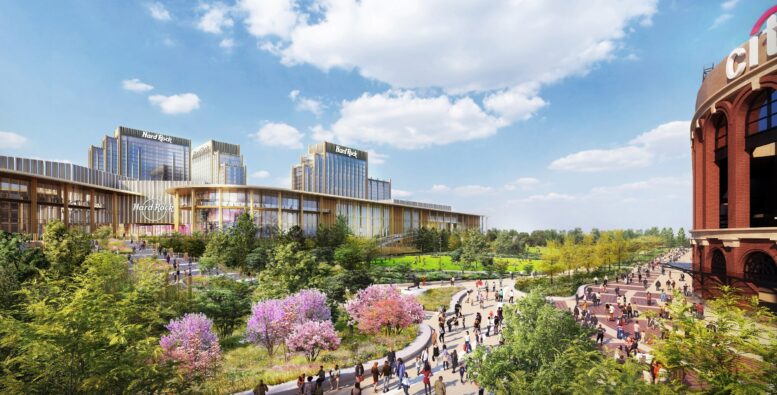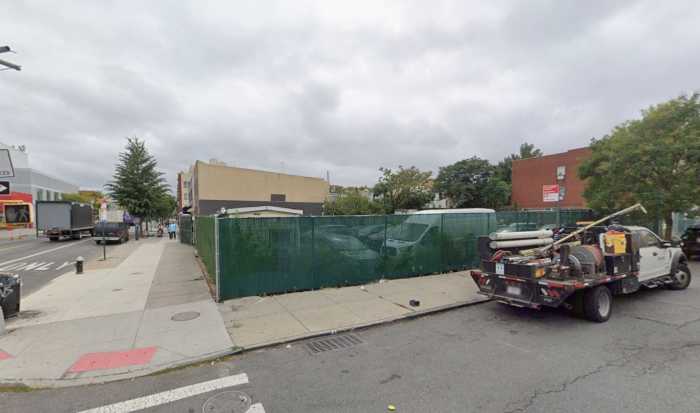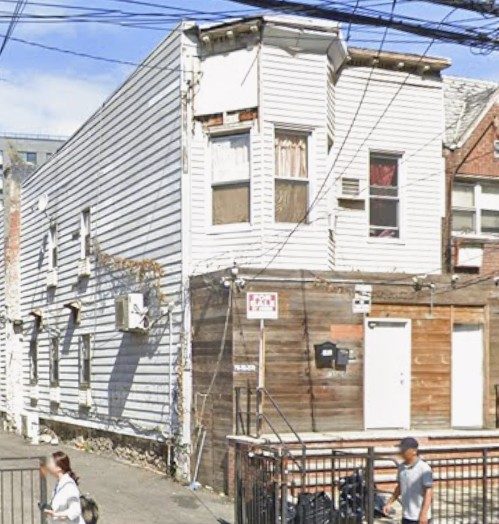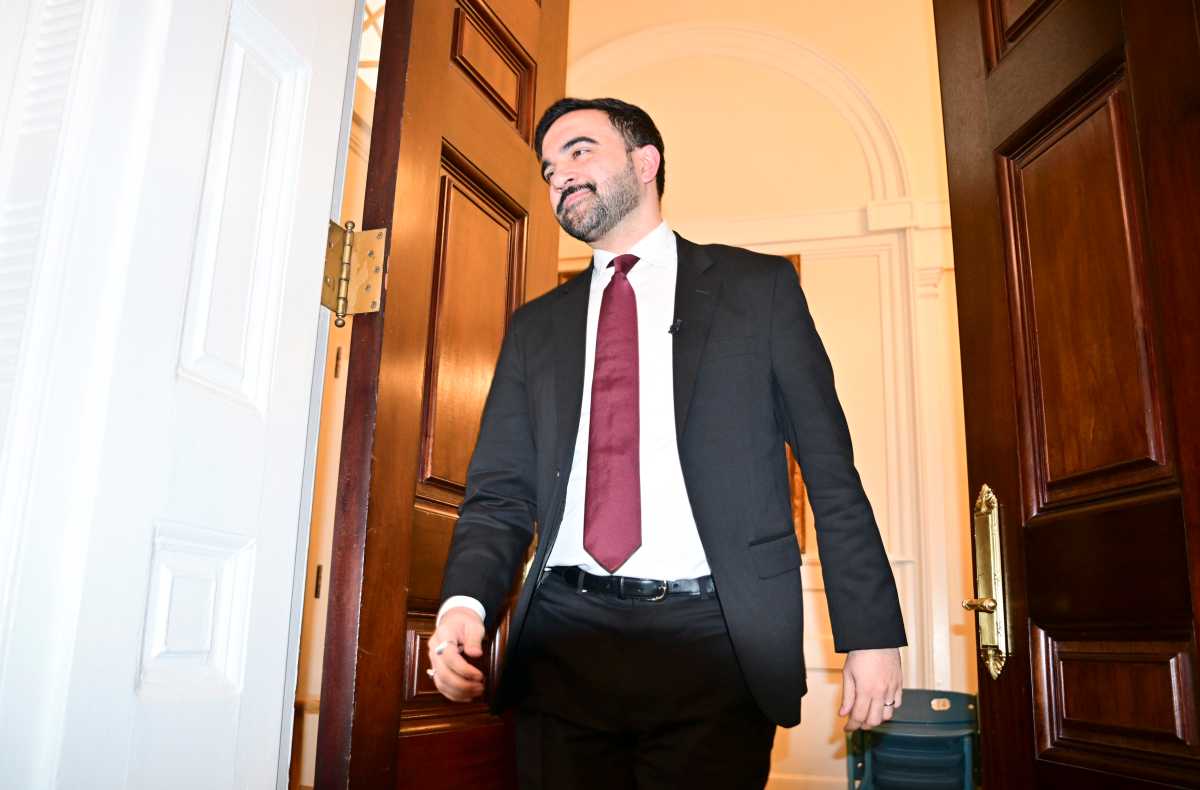The team behind the $8 billion Metropolitan Park casino proposal adjacent to Citi Field has submitted its supplemental application to the New York State Gaming Facility Location Board ahead of the Oct. 14 deadline, with three bids left competing for up to three downstate gaming licenses set to be awarded this December.
Metropolitan Park, which represents a joint venture from Mets owner Steve Cohen and Hard Rock International, would transform 50 acres of Citi Field parking lot into a sprawling complex featuring a 25-acre public park, new shops and restaurants, a Taste of Queens food hall, and a full-scale redevelopment of the Mets-Willets Point subway station, along with improvements to roads and bike paths.
The proposal also features a Hard Rock resort and casino, a key revenue-generating component of the project.
All projects vying for a downstate license were required to submit a supplemental application by Oct. 14, including material such as projected tax rates on gaming revenue, revenue estimates based on three different licensing scenarios, and anticipated state and city tax revenue for each scenario.
According to an executive summary of material filed with the state, Metropolitan Park will generate an estimated $33.5 billion in tax revenue across a 30-year period, while the project will generate an estimated 17,100 direct construction jobs and a further 25,000 indirect and induced construction jobs. The resort itself will create roughly 6,000 permanent jobs, including over 2,000 part-time positions.
Those permanent jobs will create a further 13,500 indirect and induced jobs, while the project is estimated to generate an annual revenue of $3.9 billion by its third year of stable operations.
The report estimates an annual tax revenue of $850 million by the same year, with an annual economic impact of $6.6 billion.
The team behind the Metropolitan Park bid has also proposed a $500 million up-front license fee in addition to a 25% tax rate on slot machines and a 10% tax rate on table games.
If approved, the integrated resort would boast 5,000 slot machines, 375 live dealer tables, 30 poker tables and an 18,000 square foot sportsbook and bar, according to documents filed with the state.
The Metropolitan Park team touted “unprecedented community support” over the past four years, pointing to 16 different workshops and 44,000 doors knocked.
The project has received widespread support at various levels of city and state government over the past 12 months.
Although the proposed development area is an asphalt parking lot, it is legally designated as city parkland, meaning the city needed to approve zoning text and city map amendments before the project could proceed. The state legislature also had to approve a parkland alienation bill reclassifying the 50-acre site as commercial property if the project is to be successful.
The city council voted overwhelmingly in favor of the amendments, while both houses of the state legislature also voted overwhelmingly in favor of the parkland alienation legislation.
All six community boards that sit adjacent to the project area also voted in favor of Metropolitan Park as the project made its way through the city’s Uniform Land Use Review Procedure (ULURP) last year.
Meanwhile, a Community Advisory Committee (CAC) unanimously approved the project last month.
Metropolitan Park was one of four projects to receive CAC approval, joining fellow Queens casino bid Resorts World New York City in South Ozone Park in addition to a proposal for a Bally’s casino in the Bronx and an MGM casino in Yonkers.
MGM’s Empire City, a “racino” that currently boasts slot machines but no live table games, had long been considered one of the frontrunners to receive a downstate license this December along with its fellow racino in South Ozone Park.
However, MGM made a shock announcement Tuesday that it was withdrawing from the process, leaving just three projects left in the race for up to three licenses.
MGM stated Tuesday that changing economic and competitive conditions had rendered the project no longer viable. MGM further pointed to a reduction in the expected license term from 30 years to 15 years, stating that it would alter returns on its planned $2.3 billion investment.


































